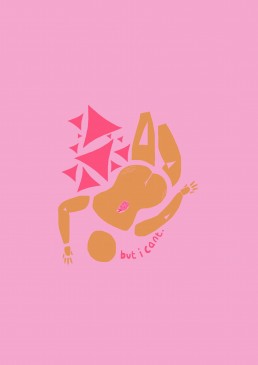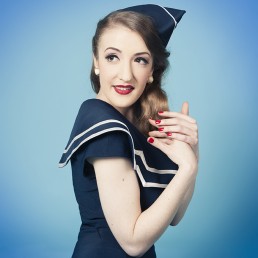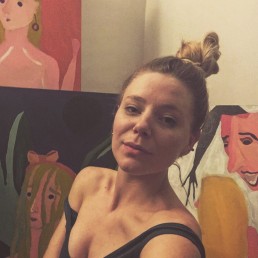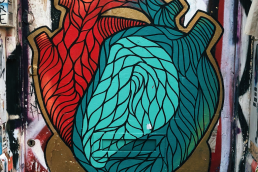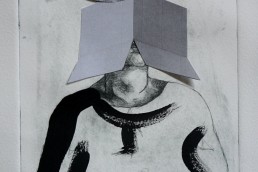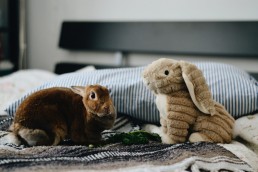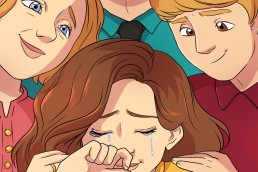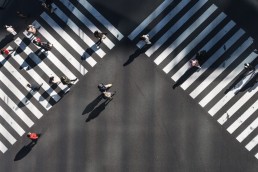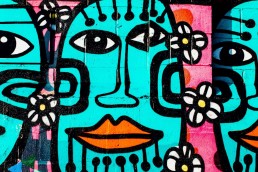By Bianca Hunter
Illustration by Lauren Drinkwater
I’m a perfectionist.
It’s not something I’m proud of or that I flaunt on my resume as a cute little character quirk. Sure, it can have its advantages – like an alphabetically ordered spice rack, or great time-management skills and hair and makeup so on fleek you look like you’ve just sashayed off a catwalk – but it can also have other, serious implications.
Perfectionism can be the killer of productivity. Perfectionism can be the killer of confidence.
Which isn’t exactly great news if, like me, you happen to be a perfectionist and an aspiring writer. As most writers and artists will tell you, creative expression is not a perfect science. Of course, there are moments when I express issues with such ease and syntactic grace it’s as if I’ve been possessed by some preternatural force. But those moments are like the Oppenheimer blue diamond: both beautiful and incredibly rare. For the most part, I just sweat and struggle with creative constipation, pushing and squeezing out words and sentences until I’m left wondering whether I may have developed a hernia inside of my brain. Needless to say, I put a lot of pressure on myself. (No pain, no gain – and there’s no pain like artistic suffering, right?)
But, up until only recently, suffer was all I did. And that’s because I was anxious, depressed and perpetually disappointed with myself and my work all of the time as a result of trying to meet my own towering expectations. I was trapped in a vicious cycle of self-torture – seriously, I had a drawer full of beautiful, leather-bound journals I refused to write in because the mere thought of sullying their pages with my mediocrity made me feel actual, physical pain – until I realised that my crippling need to be perfect was actually masking something darker. Something so insidious that (ironically enough) I’m struggling with it even now as I write this article.
Exhibit A: the ‘F’ word. I’m not referring to the word that in the past, if dropped in front of your nan, would have had you foaming at the mouth with Imperial Leather suds. No, I’m talking about failure.
While perfectionism may compel you to set goals that must adhere to a set of very specific (and usually unrealistic) standards, a fear of failure (or #FOF if you enjoy a good acronym and Insta hashtag) is when the idea of not achieving the desired outcome is so terrifying that you become stymied: you stop taking chances, you pass up on opportunities and you procrastinate. You do all of these things because you believe that if you play it safe, if you don’t stray too far outside of your comfort zone then you’re less likely to lose out, be rejected or end up cutting yourself on the shards of your broken dreams.
It all comes back to the fallacy that you’re not good enough. And, for most of my life, I actually bought into that BS. I doubted myself and my intuition. I scaled back my dreams to focus on the dreams of others. I put far too much time and effort into things that were nothing more than poor substitutes and distractions, things that neither served me nor helped me to grow. I convinced myself that I was a loser who would never amount to anything. I had no sense of purpose and direction. Hell, I didn’t even have a compass!
My fear of failure wasn’t merely a question of creativity: it was a question of self-belief and self-worth. Something had to give.
It took a significant life event for change to happen – it was a messy breakup not a near-death experience, but you can’t be too fussy where epiphanies are involved – to help me realise life is as unpredictable as it is imperfect and a failure doesn’t have to be a drawback. It can be eye-opening. It can be liberating. It can be transformative. It can be the opposite of what I thought I’d always wanted, but exactly what I really needed all along. All it came down to was this annoyingly obvious thing called perspective.
It’s not that I’m no longer a perfectionist or that my fear of failure has magically disappeared. I’ve just become better at catching myself before I fall down the rabbit hole of self-defeat and despair. I now regard fear as more of a gauge that can be used to help pinpoint exactly when I’m approaching my true north. I’ve learnt to own each of my flaws and failures, because without them I would not be the wise, interesting, confident and extraordinary (I sing my praises loud and proud, sister!) woman I am today.
I guess what I’m trying to say is, even though failure may seem like a step backwards, as long as you don’t allow it to rule your life or define your happiness, it can be what stokes your passion, curiosity and undying resolve . And, if all else fails, it makes for an entertaining story you can share with your friends, family, readers or even unsuspecting commuters trapped beside you on the train. Because, at the end of the day, perspective is the only difference between an #epicfail and #winning and you are the one who gets to choose which hashtag you want to describe your life.
Bianca Hunter
Bianca is a 27 year old writer from Australia who loves tea, Prosecco, puppies and baking. She is a passionate storyteller, public speaker and advocate for mental ill-health, who believes that words are powerful and have the ability to inspire, heal and change people’s lives. She hopes that her writing will help others with similar lived experiences to be brave and speak their truths.
Lauren Drinkwater
Lauren Drinkwater is a woman in her twenties, surviving. Art is and always has been her outlet for everything. She’s vegan. She suffers from depression and anxiety. Wearing pink makes her feel sexy and empowered. She can’t walk in heels. If she could go back in time, she’d go to an Amy Winehouse gig. She has a tattoo of Frida Kahlo on her left arm – strong positioning for one of the strongest women in her life. She worries that people won’t accept her for her. She’s recently accepted and fallen in love with her stretch marks. She’s spiritual. One day she’ll have an art studio, however, for now and the entire time she’s drawn, her studio’s her bed. She uses Photoshop and MS Paint and only uses fingers on the track pad – sorry illustrators and designers, she know it’s not the way you’re meant to do it. She loves alone time more than most people.

